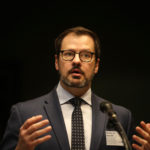Too many candles on the birthday cake?
Australia is ageing. Between 2002 and 2042 the number of Australians over the age of 65 will increase from 2.2m to 6.2m. Dr Caroline Howe has tips to manage an ageing workforce.
Age is something we all share, no matter your background or circumstances. The longer we live, the more age we have. What’s important to remember though is that we have an age, we are not an age and shouldn’t be defined by it.
Take for instance cheese. Age in cheese is excellent. So if with age a lot of things get better, why do we fear age in people?
Age is just a description. In reality we simply don’t know when old age sets in because as the years go by we, as a population, are all getting older together and remaining healthier for longer, so the benchmark for “old” keeps moving with it.
Let’s ask ourselves, what age is old? My own research has shown that nearly everyone will say that age is about 20 years older than they are right now. The problem is, we never think we are going to get to that magical “20 years from now” age and so we don’t plan, we don’t change, we don’t accept that getting older is a gift and one that needs to be looked after.
Australia, like many other countries, is ageing. Between 2002 and 2042 alone the number of Australians over the age of 65 will increase from 2.2m to 6.2m, and coupled with that is the knowledge that the number of available workers is decreasing. By 2042 there will be 2.5 workers to support each person over 65 in comparison to 7 in previous years.
How prepared are we to deal with this as an individual or as an employer? Our research has shown that the cost of workers compensation claims increases exponentially on claims when the worker is older. That doesn’t always mean older people injure more but it might be more expensive.
Over the next few decades, the cost impact to your organisation could unnecessarily increase as your workers age. Lack of planning for changing labour needs, possible increased risk of injury to older workers through lack of prevention of injury strategies and a decreased ability to change the workplace to cater for the changing worker through lack of planning can all affect the bottom line.
A planned and coordinated approach to managing an ageing team or workforce can ensure that you are able to get the best out of people – just like cheese!
Top Tips – what you can do to commence planning for a healthier workforce…
Key principles:
- keep your staff strong and safer from serious injuries
- find new ways to harness the intellectual and social capital that older workers can offer
- provide new ways of learning and working for our changing workplaces – it pays to age well!
What to do (or not to do!):
- Don’t assume a role is too physically demanding for an older worker. Use the same risk management for an older worker as you would for a younger worker and apply logical objective decisions about the role fit.
- Physical and sometimes psychological ability does change as we age – so what can be done to help the person work longer, or more effectively? Have you thought about on site health and wellbeing programs to help all of your workers be as healthy and strong as possible? What could you do to increase overall health and wellness in your workplace? Inter-generational mentoring programs can often unearth gems of knowledge management and sharing – in BOTH directions!
- Health and safety risks need to be identified early so that you can plan, make adjustments and prevent injury from occurring, both physical and mental injury. What processes do you have in place to identify and manage risk efficiently? Have you thought about job redesign, role-sharing and task analysis? If an injury has occurred, do you have a recovery at work plan in place? What does it look like? Do you have suitable duties?
If you haven’t already done so, try doing an ‘Age Impact Analysis’ on your business. Harness the knowledge you have in your HR team and match it with your Workers Compensation teams’ knowledge. Start with finding out all the things you know and then look for the gaps. Ageing is not terrifying; it isn’t a surprise either, but it is new to the world so the time is now to start thinking differently about what the future workplace will look like.
Dr Caroline Howe is the Manager of Research and Design at icare and a founding director of Think Howe Pty Ltd, a specialist provider of managed solutions & research in the area of ageing well at work and workplace wellness.













